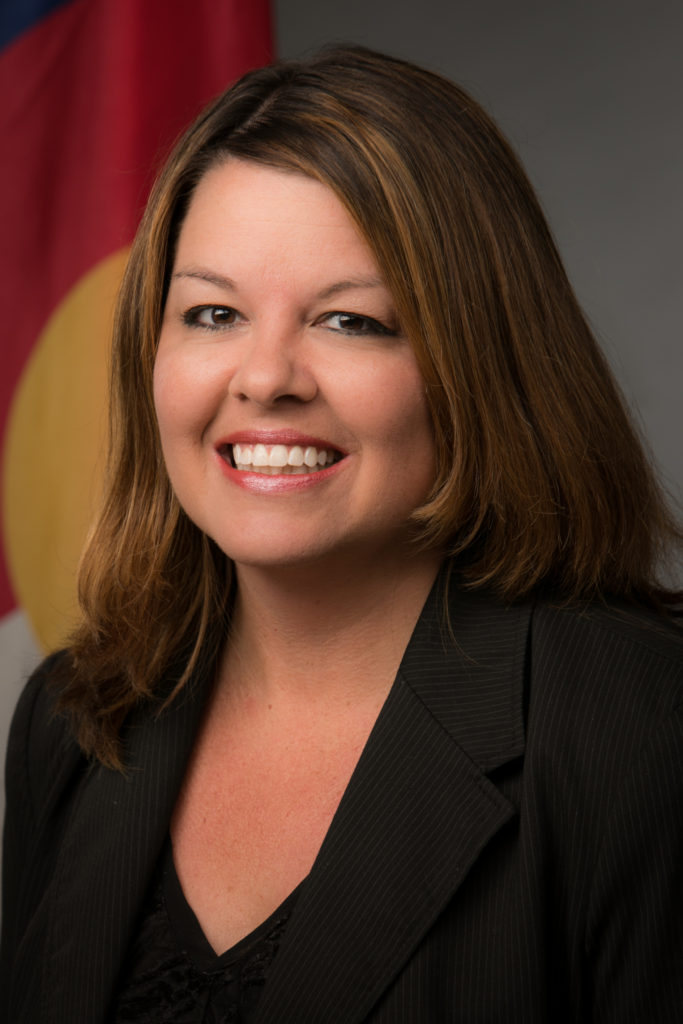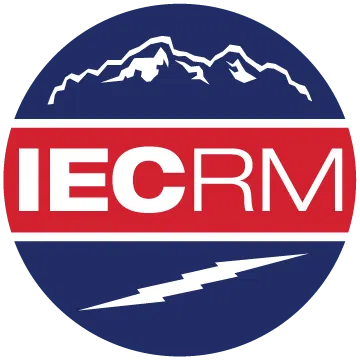SPOTLIGHT: Ronne Hines, Colorado Department of Regulatory Agencies, Director of the Division of Professions and Occupations

An Electrician Career is Challenging and Varied; Be Your Own Boss; Be Respected in Your Community; Earn a Living Wage
About…
Meet Ronne Hines, Director of the Division of Professions and Occupations (DPO) in the Colorado Department of Regulatory Agencies (DORA) and a rare Colorado native. As former DORA Executive Director Joe Neguse says, “Ronne has been a visionary partner in our efforts to protect consumers, and she has served as a powerful voice in the healthcare community for protecting and breaking down silos among professions.”
What does that actually mean? Ronne says, “I am committed to working with the Division’s licensing boards and the consumer community to ensure Colorado regulations are fair and do not stand in the way of innovation.”
She served the state of Colorado as DPO’s Deputy Director for Healthcare, working on a number of initiatives to expand access to healthcare across Colorado. Prior to her role as Deputy Director for Healthcare, Ronne was a program director charged with the day-to-day operations and enforcement for six mental health regulatory boards. Before DORA, she was an attorney in private practice and while migrating to public service, held several leadership and policy committees including the State Innovation Model working groups – the Colorado Consortium to Reduce Prescription Drug Abuse, the Council on Licensure, Enforcement and Regulation, where she is a frequent speaker on regulatory enforcement and innovation on both national and international platforms. “She is an effective leader who is truly committed to our mission,” says Neguse.
How has your career migration from the private legal sector to government been – first in Healthcare and now with the Division of Professions and Occupations?
“On many levels, practicing in law helped me make that transition. As an attorney in a small firm in private practice, I wore many hats giving me a great basis to join DORA, initially working in contracts,” Ronne says. “It was not entirely a linear transition, but it was great for me personally. I have been able to do things I would never have been able to do in the private sector.”
Tell us what your thoughts are about someone becoming an electrician…
“I’ve experienced healthcare extensively, but electrical and plumbing are very different. Being an electrician is a great, sustainable, long-term career,” she says. “The industry is active and influential especially in this time of COVID. As electricians, you are essential. I make sure that all working apprentices register with DORA and help us track their hours to ensure they complete the journey to obtain their license.”
Ronne talked about SB20-120: This Bill requires that an apprentice who has been registered for at least six years, has completed 8000 hours of practical training, and meets all other Journeyman’s Electrician License requirements shall take the license examination at least every three years in alignment with the license renewal cycle until the apprentice receives a passing score. Click here to read the Colorado Department of Regulatory Agencies bulletin.
“This was a small fiscal note, and it helps us keep close track of candidates who are moving through their apprenticeship,” she says. “We are making sure that apprentices are testing and moving forward along the continuum of on-the-job and classroom requirements toward passing the exam and obtaining a sustainable career.”
What prompted Bill 120?
“There exists an attrition rate among apprentices who complete their on-the-job and even classroom training, who do not go on to test to be licensed,” Ronne says. “It’s not a huge attrition rate, but it is enough to be noticed. In response to this, the electrical industry expressed they wanted to make sure they help apprentices keep moving from one level to the other.”
What advice do you have for those interested in the electrical contracting industry?
Basic requirements:
“The minimum level of education required to become an electrician is a high school diploma or equivalency degree, like the General Education Diploma (GED). This educational step is important on the journey to becoming an electrician because the high school curriculum covers the basic principles used on the job,” says Ronne.
“Whether you’re still in high school, have an associate’s degree from a community college, or are a military veteran, these are the requirements you need to fulfill to better prepare you for your future vocational program and apprenticeship,” Ronne says. She recommends that apprentices focus on the following:
- Math fundamentals. In most states, you must take and pass at least one year of high school algebra to become an electrician. You may need to earn at least a “C” in your algebra class to qualify. Learn more about math requirements in our previous blog,
- Physical science. You must have an understanding of physics, particularly the physics of electrical currents, to work as an electrician. High school physics courses can provide the theoretical and mathematical foundation for your future education.
- Practical courses. If your school offers practical courses like electronics, automotive mechanics, or woodshop, sign up. Even practical courses that don’t necessarily contribute directly to your electronics knowledge, like woodshop, can help you become confident working with your hands.
Vocational Schooling:
Ronne shares, “After you receive your high school diploma or GED, in most states you have the option to seek out an apprenticeship directly or to start a vocational program. Most professionals recommend starting with a reputable electrical training course or with an apprenticeship program that combines classroom and jobsite experience. Not only is it easier to qualify for a school than for an apprenticeship without prior experience, a school also teaches you the practical knowledge you’ll need every day on the job. Vocational school can also help you get a better apprenticeship afterward.” Clearly, Ronne loves helping people obtain the education needed for a successful career. She elaborates, “During vocational training, you learn the theories, calculations, skills, and information you’ll use when working as an electrician. Most courses include units on electricity basics, technical math, relevant skilled labor tasks, and the national and local electrical codes. Once you complete your training, your vocational school can connect you to local electricians who work in your chosen sector who are willing to take on apprentices. Your vocational training may even include courses on applying and interviewing for jobs so that you’re adequately prepared for your employment future.”
Vocational Schooling:
“Finally, as an apprentice, you’ll work with one or more journeymen electricians on real job sites. You’ll learn and practice electrician skills directly from these professionals,” she adds. “Colorado does have a requirement for the length of time you must work as an apprentice before you can become a journeyman electrician yourself. In most cases, this time frame ranges from two to seven years.” That requirement is 8,000 hours on-the-job training, and at least 288 hours of classroom training.
One final note: if you choose to pursue an apprenticeship with a professional electrician without a vocational training program, you may be required to take a course on the National Electrical Code (NEC) and on relevant state codes.
What are the most important skills needed to succeed in the workforce of the future?
“Technology proficiency is really important”, she says. “You must be willing and able to embrace change and be flexible about new ways of getting things done.”
Working with your peers in other states?
“Across the U.S., our regulatory committee meets frequently with other state regulators,” Ronne says. “What is exceptional to know is that Colorado is consistently at the forefront of innovation, focus on mobility, and continuing education.”
How does IECRM help DORA?
“Being partners with IECRM is incredibly invaluable — for DORA and for me — as we work to continually improve what we do together,” observes Ronne. “We constantly want to hear from IECRM about what is important and essential to apprentices and job seekers in an electrical career.”
Words of wisdom or inspiration for young people considering electrical contracting as a career?
“Find a career that you love and be part of a community. This will bring passion to your work and motivate you to want to grow and continue to learn, “ Ronne emphasizes.
